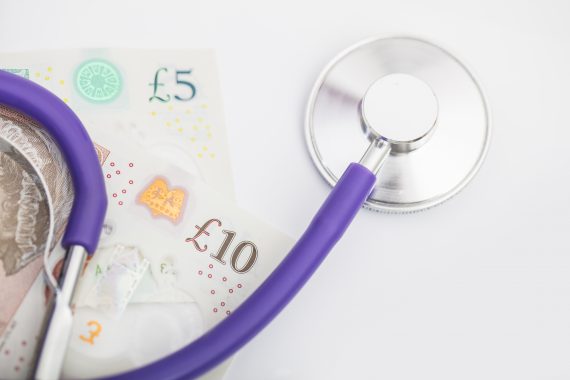NHSE amends ‘catch-22’ rules after new GP partners denied ‘golden hello’

NHS England has amended its ‘new to partnership’ payment scheme guidance after GP partners were denied their £20,000 golden hellos in a ‘catch-22’ situation.
The amendment means new partners can get the payment without holding an equity share in the GP partnership and came about via BMA negotiations, after Pulse brought a particular case to its attention.
Following the amendment, first-time partners with a fixed share of practice profits that is no less than 10% or who receive equal shares to other partners will be eligible for the golden hello scheme, NHS England said.
It also said it will accept a wider range of verification of a new partner’s status.
The GP whose case Pulse highlighted to the BMA had been caught up in a catch-22 situation after NHS England’s new-to-partnership team told them that they were ineligible for the payment due to being a fixed-share partner. But it said they would also be ineligible to reapply to the scheme when they became a full equity partner because they would no longer be a ‘first-time’ partner.
The GP, who wished to remain anonymous, told Pulse: ‘This seems inconsistent and unfair – either this counts as a partnership or it doesn’t. It can’t not count as a partnership for them to give it to me but count as a partnership for them to disqualify me from having it in the future.’
They first applied in July but their application was rejected on 18 September after a ‘back-and-forth requesting various documents’ including a signed GMS contract, they told Pulse.
Before the situation was rapidly rectified, the GP said they feared the rules would ‘serve as a disincentive for people like me to take partnership, the exact opposite of the objective of the scheme’.
And they said the rejection had ‘certainly caused me to re-evaluate my career plans’.
The GP said: ‘This partnership payment didn’t really tip the balance but it being there felt like there was some support about that recognised partnership isn’t quite as attractive a thing as it used to be and a lot of contemporaries aren’t going for it.’
If they had not taken on the partnership, there would be ‘a real chance that the practice might close’ or be ‘taken over by some other organisation’, they added.
After Pulse brought the case to the BMA, a spokesperson said it was raising the issue with NHS England.
Subsequently, the latest bulletin from the BMA’s GP Committee said: ‘We recently became aware of a potential issue with the new-to-partnership scheme which applies to new clinical partners from 1 April 2020, causing a “catch-22” situation.
‘We know that new partners often commence with a fixed-share “probationary” period, before moving to a full equity share.’
It added: ‘We have discussed this issue with NHSE/I and agreed that in these situations, an individual will be accepted on to the scheme once they become a shareholding partner on an equity basis, as long as the probationary period commenced after 1 April 2020.’
Meanwhile, an NHS England email update sent to practices added that it has agreed on ‘alternative evidence’ after individuals were not able to obtain the evidence required to support their application ‘in some instances’.
It said: ‘Through discussion with the BMA, we have identified alternative evidence that can be submitted for two aspects: we currently ask for a copy of the partnership agreement to evidence partnership role and equity share – where this is not available we will now accept a headed letter from the practice to confirm these details.
‘To evidence the practice contract type we originally requested a copy of the GMS, PMS or APMS contract – we will now instead check the CQC website to obtain this information. We will however still require a copy of any APMS contracts, to demonstrate time remaining on the contract.’
It added that guidance documents have been updated and those who have already applied to the scheme but were unable to provide the original evidence needed will be contacted and do not need to reapply.
Meanwhile, in an email seen by Pulse, NHS England’s new-to-partnership team told the anonymous new partner: ‘It is standard practice for many GP practices to commence a partner on a fixed share at the beginning of the partnership.
‘Taking this into account, we have amended our frequently asked questions to clarify that where there is a fixed share, shares should be equal to other partners in the practice, and where this is not the case, shares are not expected to be less than 10%.’
A spokesperson for NHS England said: ‘The NHS is committed to supporting general practice and the long-term sustainability of the profession and our new-to-partnership payment scheme is one of the ways we are doing this.’
Applications to the scheme opened in July, when NHS England said it was ‘working on’ including practice managers in the £20,000 ‘new to partnership’ incentive.
However, practice managers are still excluded from the scheme according to the latest guidance.
Related Articles
READERS' COMMENTS [1]
Please note, only GPs are permitted to add comments to articles










I’d be a Partner again, for a Golden Hullo. Why not againers?